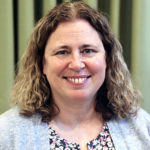By 2040, 80 million Americans — almost 20% of the projected population — will be aged 65 or more years. That means, quite literally, that one in every five Americans will be of retirement age.
With this population trend, we also will see a significant need for high-quality hospice care in our country. Hospice / palliative medicine still is a relatively new specialty, so it’s important that it becomes more widely understood and available across the country, especially in senior living communities and nursing homes.
Hospice care providers deliver crucial end-of-life support to those who need it most. According to the National Hospice and Palliative Care Organization, more than 1.6 million Medicare beneficiaries received hospice care in 2019, a 3.9% increase from 2018, yet many patients and their families still may not know the full benefits of this specialized care. As a result, many people who are facing life-limiting illness make decisions without understanding hospice and the Medicare benefits that could provide this specialized care to them.
As the executive director of Goodwin House Palliative Care and Hospice, a not-for-profit service providing end-of-life care to individuals 18 and older with terminal illnesses, I oversee hospice care for hundreds of patients and their loved ones. Some receive service in senior living communities, others in their homes. The teams that service hospice patients and their families include nurses and physicians, volunteers who help with a range of tasks to support patient and their families, the individuals handling insurance paperwork behind the scenes to spare the patient and their families that task, your spiritual care provider and every expert and professional in between, including a hospice medical director.
Knowing the extent to which hospice allows patients and their families to choose how the patient will live out his or her days and that this service is funded through Medicare, you can understand my passion to ensure that everyone with a terminal condition can access hospice. In addition to services in the community, Goodwin House is the only senior living community in Northern Virginia that offers hospice care to its residents and is only one of seven in the nation accredited to do so.
The COVID-19 pandemic made the demand for nurses and other medical professionals grow exponentially. A recent survey from the American Health Care Association / National Center for Assisted Living found that 96% of assisted living communities and 99% of nursing homes in the United States were facing a staffing shortage as of September. The news is filled with stories of healthcare staffing shortages nationwide, and these staffing shortages also are the biggest challenge facing the hospice industry today.
Hospice care professionals are working diligently to keep up with the staffing challenge. Goodwin House Hospice serves as a clinical rotation site for local students to help expand the number of hospice care workers in the Washington, D.C., region. We have worked with Marymount University, George Mason University and George Washington University to offer programs and curriculum that prepare students for working with end-of-life patients. Staff members at Goodwin House Hospice receive specialized training, working with hospice educators to complete online training, as well as in-person training with educators or staff preceptors.
This year, the theme of November’s National Hospice and Palliative Care Month was “It’s About How You Live.” This has always been my outlook on end-of-life care and is the foundation of the conversations our team has with patients and their families. Hospice can empower patients to take control of their end-of-life care, and the senior living and healthcare industries need more qualified, passionate hospice doctors, nurses, social workers, certified nursing assistants and spiritual guides to help lead the way.
Senior living communities can both expand awareness and ensure that their residents have access to high-quality hospice care by partnering with community hospice programs. Our team is honored to help hospice patients be comfortable in the place they call home. I encourage senior living organizations to explore how they can best serve the older adult patients within their living communities and beyond.
Elizabeth Klint is the executive director of Goodwin House Palliative Care and Hospice, ia not-for-profit service providing end-of-life care to individuals 18 and older with terminal illnesses. It offers hospice care for residents at community locations in Alexandria and Bailey’s Crossroads and in private homes throughout the Northern Virginia area.
The opinions expressed in each McKnight’s Senior Living guest column are those of the author and are not necessarily those of McKnight’s Senior Living
Have a column idea? See our submission guidelines here.




